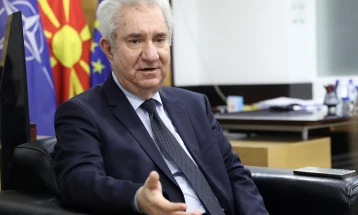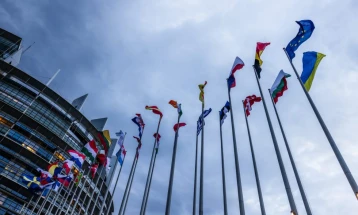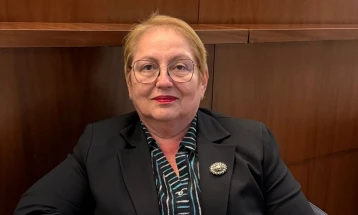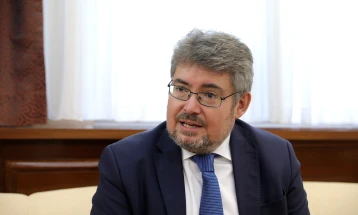Several Schengen countries tighten border controls to curb illegal immigration
- A number of countries including Austria, the Czech Republic, France, Germany, Italy, Poland, Slovenia and Slovakia have announced new controls along their borders.
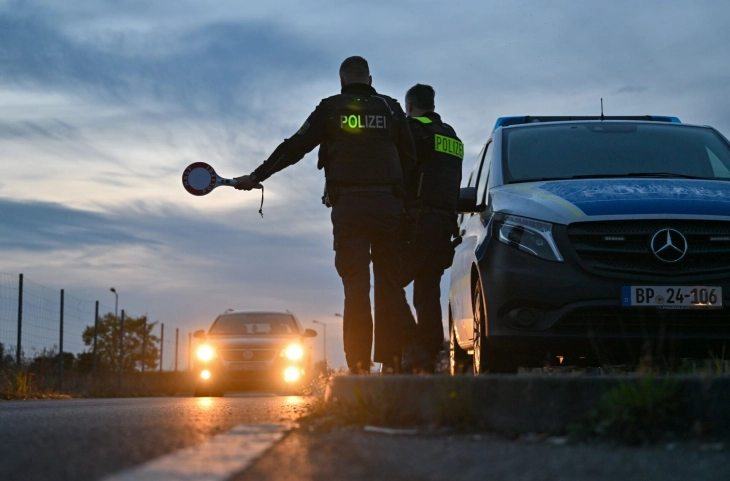
20 October 2023
by AFP, ANSA, Agerpres, Belga, BTA, dpa, EFE, FENA, HINA, MIA, STA, TASR | Key Story
A number of countries including Austria, the Czech Republic, France, Germany, Italy, Poland, Slovenia and Slovakia have announced new controls along their borders. They are trying to prevent people smugglers from using routes through the Balkans to bring migrants to Central and Western Europe. This puts pressure on the Schengen area of free movement and visa-free arrangements with third countries.
Border controls are being introduced due to challenging security conditions and the increased threat of terrorism in Europe following the recent outbreak of violence in the Middle East as well as terrorist attacks in France and Belgium. In some countries, the situation is fuelling support for right-wing political parties.
The countries tightening controls are all members of the European Union and of Europe’s Schengen open-borders zone. Central European countries in particular have recently seen a growing number of migrants and asylum seekers coming largely from Serbia via Hungary and heading to wealthier Western European countries.
The reintroduction of border checks in the Schengen area is permitted in exceptional circumstances, and Brussels must be notified before implementation.
Recent terrorist attacks cause concern
Nonetheless, European leaders have repeated calls for better protection of the EU’s external borders and reaffirmed their cooperation on migration in the wake of the deadly attack in Brussels on Monday. Two Swedish football fans were shot dead near the stadium where Sweden was playing Belgium to qualify for the Euro 2024 tournament.
The terrorist militia Islamic State (IS) later claimed responsibility for the attack. The suspected perpetrator was a rejected asylum seeker from Tunisia who, according to authorities, was staying illegally in Belgium. Belgian police shot the 45-year-old man in a café in Brussels on Tuesday morning and he died of his injuries.
A more united European approach was needed “to tackle the root causes of what we have seen here in recent days,” Belgium’s Prime Minister Alexander De Croo said Wednesday in Brussels at a joint press conference with his Swedish counterpart Ulf Kristersson and European Commission President Ursula von der Leyen. Earlier, the leaders had jointly paid tribute to the victims of the attack.
Von der Leyen said that a European proposal had been on the table for some time “giving Member States the power to expel persons who have received a return order if they are considered a threat to national security.” The proposal – a revision of the European Return Directive – is part of the much-discussed migration pact. “Knowing that Belgium will hold the next presidency, I am confident that we will be able to get this pact over the line,” Von der Leyen said.
Following Italy’s decision to introduce border controls on the Slovenian border due to the outbreak of violence in the Middle East, Slovenia has announced a revised regime that will apply to its borders with Croatia and Hungary.
In Croatia, which entered Schengen only at the beginning of this year, Slovenia’s decision to introduce temporary border controls has become a pre-election topic and attracted a lot of attention. Since the next 2024 is a super-election year in Croatia with parliamentary, European, and presidential elections, the temporary introduction of border controls triggered heated debates between the government and the opposition. The Croatian government presented the entry into Schengen as its great success, and now after border controls are re-introduced not even a year after joining Schengen, the opposition wants to present it as a failure of the government. Some right-wing parties have proposed building walls and sending the army to guard the borders. The government firmly rejects this and claims that it has enough police officers and equipment for effective border protection.
Italian Prime Minister Giorgia Meloni said Wednesday that the international situation made it necessary for Italy to suspend the Schengen Treaty after her government decided to reintroduce controls at Italy’s border with Slovenia from Saturday October 21.
The Spanish government has avoided raising the anti-terrorist alert to the maximum. For the time being, Spain has no plans to introduce police checks at its borders with other European Union countries.
Schengen accessions on the table
European Commissioner for Home Affairs Ylva Johansson said on Thursday after a meeting of EU interior ministers that internal controls, even when justified by strong security reasons or by illegal border crossings, should be avoided because they hindered the free movement of people and goods.
The delegations from Romania and Bulgaria – both in the process of joining the Schengen area – presented the measures they have adopted to tighten border controls and enhance EU security. Johansson praised Romania’s progress in the field of border control, migration and asylum.
“I do not see any reasonable obstacle for Bulgaria not to be accepted into Schengen by the end of this year,” Bulgarian Interior Minister Kalin Stoyanov told Bulgarian journalists in Luxembourg, where he participated in the meeting of his EU colleagues. The Spanish EU Presidency hopes to reach an agreement in the Council in December to give the green light to the accession of both countries.

Migration issue fuels the (far-)right
A surge in migrant arrivals in recent months, mainly from Syria and Afghanistan, has reignited a fierce immigration debate in Germany with local authorities saying they are overwhelmed by the number of asylum seekers. The influx has fuelled support for the far-right, anti-immigration Alternative for Germany (AfD) party, which made major gains in two regional elections this month.
Germany is set to introduce fixed border checks at entry points from Poland, the Czech Republic and Switzerland, the Interior Ministry announced on Monday. While Switzerland is not in the EU, it is part of Europe’s Schengen open-borders area.
Interior Minister Nancy Faeser on Monday notified the European Commission of the plans, which will mean the possible introduction of police checks directly at the borders between Germany and its three neighbours.
Rethinking visa regimes
On Wednesday, MEPs approved a new law to digitise Schengen visas, making them more secure and accessible. By digitising the visa application process, the law aims to reduce the cost and effort of applying for a visa, while ensuring harmonised practices across Europe and improving security.
Slovak MEPs from across the political spectrum welcomed the European Parliament’s approval on Wednesday of the law on the digitisation of Schengen visas. However, European countries that currently have visa-free travel arrangements with the EU are concerned about the re-imposition of visa regimes with the bloc.
Currently, the EU requires Bosnia and Herzegovina (BiH), for example, to introduce visas for countries under the EU visa regime, an obligation arising from an agreement between BiH and the EU from 2010. Although 13 years have passed, BiH has still not fulfilled this obligation, which could jeopardise the country’s visa-free status. The European Commission has reserved the right to recommend to EU interior ministers the possible suspension of the visa-free regime if BiH does not comply with EU visa policy.
Citizens of North Macedonia can travel visa-free, transit or make short stays of up to 90 days in any 180-day period in Schengen countries. However, from 2024, around 1.4 billion people from more than 60 visa-free countries, including North Macedonia, will need a travel authorisation to enter most European countries through the European Travel Information and Authorisation System (ETIAS). It costs €7 to apply for an ETIAS travel authorisation, although some travellers are exempt from paying this fee.
In October, the Commission adopted a proposal to strengthen the visa suspension mechanism in order to better address emerging security and migration challenges. The visa suspension mechanism allows the EU to reintroduce the visa requirement for a third country in case of a significant increase in irregular migration or security risks.

Schengen accessions on the table
European Commissioner for Home Affairs Ylva Johansson said on Thursday after a meeting of EU interior ministers that internal controls, even when justified by strong security reasons or by illegal border crossings, should be avoided because they hindered the free movement of people and goods.
The delegations from Romania and Bulgaria – both in the process of joining the Schengen area – presented the measures they have adopted to tighten border controls and enhance EU security. Johansson praised Romania’s progress in the field of border control, migration and asylum.
“I do not see any reasonable obstacle for Bulgaria not to be accepted into Schengen by the end of this year,” Bulgarian Interior Minister Kalin Stoyanov told Bulgarian journalists in Luxembourg, where he participated in the meeting of his EU colleagues. The Spanish EU Presidency hopes to reach an agreement in the Council in December to give the green light to the accession of both countries.
This article is published weekly. The content is based on news by agencies participating in the enr.
Photo: 1. Patrick Pleul dpa; 2. Bernd von Jutrczenka dpa; 3. Uncredited AP dpa




